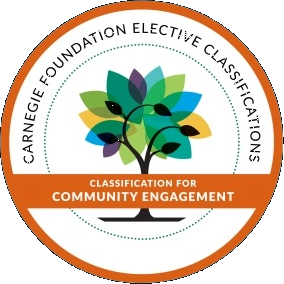Engagement Strategies
Given the complexities of interacting with healthcare professionals and institutions, listed below are a few best practices that researchers may use when interacting with healthcare professionals and institutions:
Highlight the Benefits of Research for Patients. Healthcare professionals are motivated by patient outcomes, so it’s essential to show how research findings can lead to tangible improvements in patient care and patient outcomes. When presenting your research, focus on its practical implications such as reducing hospital readmission rates, enhancing diagnostic accuracy, or improving treatment protocols. Use data or success stories from similar studies to build credibility (1).
Align Research with Healthcare Priorities: Use the RELATE model (De Brun & McAuliffe, 2021) to understand and align research interventions with the specific priorities and complexities of healthcare institutions, ensuring mutual benefit and relevance (2).
Leverage Clinical Champions: Clinical champions are individuals who support, advocate for, and assist in leading others through the implementation process as well as fight against institutional and organizational resistance. Leveraging these champions involves identifying social leaders in any given organization and forming a relationship with them. This can look like asking a nurse who mentors nursing students to assist in sharing research on nursing best practices (3).
Establish Formal and Informal Networks: Build formal and informal networks between researchers and healthcare institutions to foster trust, open communication, and long-term partnerships that support research and clinical practice integration (4) (5).
Incorporate Transparent Communication Processes: Maintain transparent processes and open communication channels with healthcare professionals, ensuring that research goals, methods, and outcomes are shared and understood by all parties (1).
Share Resources and Credit Equitably: Balance power dynamics by sharing resources, responsibilities, and credit for accomplishments with healthcare partners, ensuring equitable partnerships and stronger engagement (4).
Co-Design Research with Healthcare Professionals: Work together with healthcare providers to identify shared health priorities, design studies, and develop research questions that align with clinical needs, fostering ownership and relevance of the research (1) (4).
Build and Maintain Trusting Relationships: Establish and sustain credibility and trust in the research process by actively listening, learning from feedback, and evolving interventions based on insights from healthcare professionals (4).
Disseminate Findings to Diverse Audiences: Ensure findings are disseminated to various stakeholders, including healthcare providers, community members, researchers, and policymakers, facilitating the translation of research into practical healthcare improvements (5) (6).
These strategies emphasize collaboration, mutual respect, and clear communication to bridge the gap between research and healthcare practice.
Engagement Activities
Collaborative Clinical Trials
- Partner with healthcare institutions to design and conduct clinical trials that address pressing medical needs. This provides practical insights for both researchers and clinicians while advancing patient care.
Co-Development of Care Protocols
- Work with healthcare professionals to co-develop care protocols and guidelines based on research findings. This ensures that research directly informs clinical practice, improving patient outcomes.
Workshops and Seminars for Healthcare Providers
- Organize or participate in workshops and seminars tailored to healthcare providers, sharing the latest research developments, treatment innovations, and evidence-based practices relevant to their fields.
Multidisciplinary Research Rounds
- Participate in or host multidisciplinary rounds in hospitals where researchers and clinicians discuss complex cases, integrating academic research with real-world clinical decision-making.
Health Policy Discussions
- Engage healthcare leaders in discussions about how research can influence health policies and healthcare reforms. This bridges the gap between academic research and practical healthcare system improvements.
Joint Research Proposals
- Collaborate with healthcare professionals on joint research proposals, aligning research goals with clinical needs to secure funding and work on projects that benefit both fields.
Shared Data Initiatives
- Create or participate in shared data platforms where researchers and healthcare providers can access patient data (within ethical and privacy standards) for studies, improving the quality and relevance of research.
Health Impact Assessments
- Conduct health impact assessments (HIAs) with healthcare institutions, evaluating how research can affect public health outcomes and assisting providers in understanding research implications for practice.
Mentorship and Shadowing Programs
- Create mentorship or shadowing programs where healthcare professionals can observe research processes, and researchers can gain firsthand clinical insights by spending time in healthcare environments.
Collaborative Quality Improvement Projects
- Work with healthcare institutions on quality improvement projects that integrate academic research findings into efforts aimed at improving clinical workflows, patient safety, and healthcare delivery standards.
These engagement activities encourage ongoing collaboration, knowledge sharing, and practical application of research in healthcare settings, benefiting both researchers and those working in health care.
Sources
- Grant, A. M., & Hofmann, D. A. (2011). It’s Not All About Me: Motivating Hand Hygiene Among Health Care Professionals by Focusing on Patients. Psychological Science, 22(12), 1494-1499. https://doi.org/10.1177/0956797611419172
- De Brún, A., & McAuliffe, E. (2021). The RELATE model: strategies to effectively engage healthcare organisations to create amenable contexts for implementation. Journal of Health Organization and Management, 35(9), 338–348. https://doi.org/10.1108/jhom-08-2020-0335
- Morena, A. L., Gaias, L. M., & Larkin, C. (2022). Understanding the role of clinical champions and their impact on clinician behavior change: the need for causal pathway mechanisms. Frontiers in Health Services, 2. https://doi.org/10.3389/frhs.2022.896885
- Rhodes, S. D., Tanner, A. E., Mann-Jackson, L., Alonzo, J., Simán, F. M., Song, E. Y., Bell, J., Irby, M. B., Vissman, A. T., & Aronson, R. E. (2018). Promoting Community and Population Health in Public Health and Medicine: A Stepwise Guide to Initiating and Conducting Community-engaged Research. Journal of health disparities research and practice, 11(3), 16–31.
- Mays, G. P., Hogg, R. A., Castellanos-Cruz, D. M., Hoover, A. G., & Fowler, L. C. (2013). Public health research implementation and translation. American Journal of Preventive Medicine, 45(6), 752–762. https://doi.org/10.1016/j.amepre.2013.08.011
- Chapman, E., Haby, M. M., Toma, T. S., De Bortoli, M. C., Illanes, E., Oliveros, M. J., & Barreto, J. O. M. (2020). Knowledge translation strategies for dissemination with a focus on healthcare recipients: an overview of systematic reviews. Implementation Science, 15(1). https://doi.org/10.1186/s13012-020-0974-3









